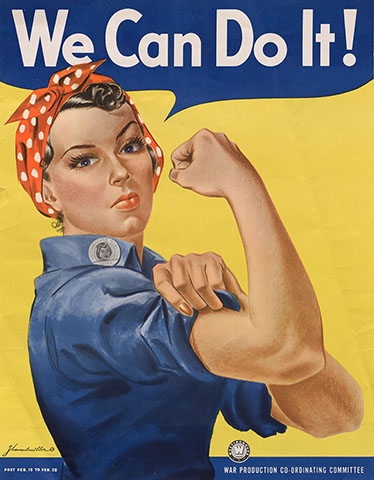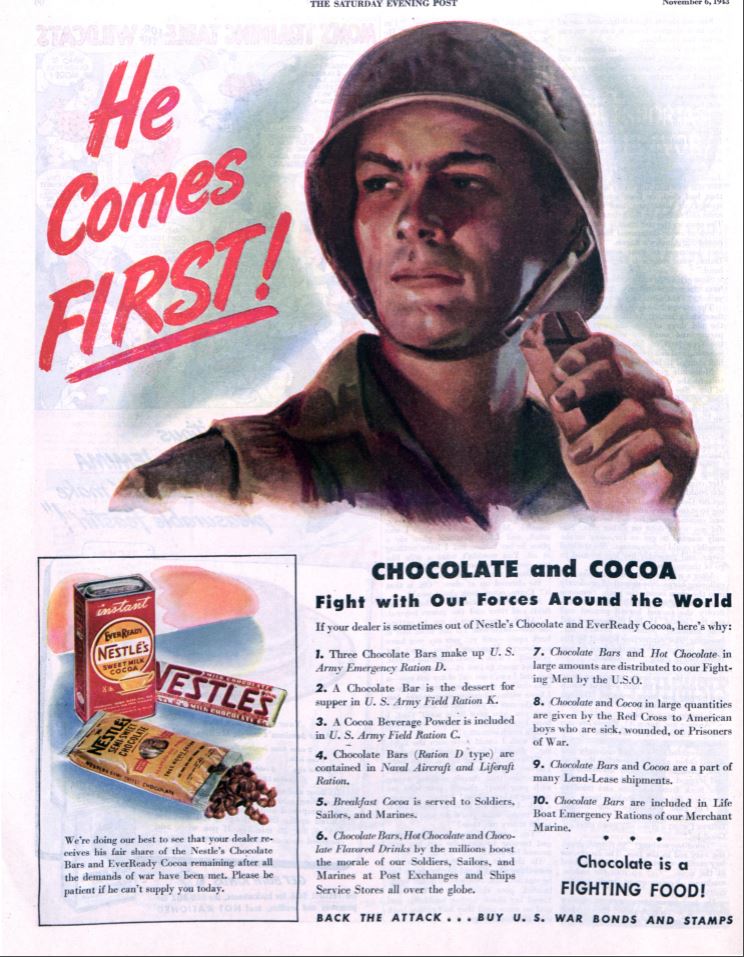Name of the presidential advisers of Roosevelt's New Deal Program
Brain Trust
the stock market
Popular music of the 1920s
jazz
fascist leader in Germany
Adolf Hitler

This poster is an example of:
Female factory labor during World War II
When Roosevelt sought to add six new justices to gain more support for New Deal programs
Court Packing
Occurrence when loose topsoil was blown across the Great Plains after a long drought
the Dust Bowl
Mode of transportation that became popular in the 1920s due mass production and its decrease in price
automobile
Militaristic nation that sought expansion in Asia and the Pacific
Japan

This poster is an example of:
wartime rationing
Weekly radio broadcasts by FDR that explained the programs of the New Deal and assured Americans
Fireside chats
Camps for homeless families on public lands or in cities
Hoovervilles
Innovation that connected people nationally through broadcast programs, music and new
radio
The cause of the U.S. entrance into World War II
the bombing of Pearl Harbor
Top secret military project that built the first atomic bomb
the Manhattan Project
TVA
the Bonus Army
Teapot Dome
Allied Invasion of Europe in 1944
D-Day
The term for victory over fascism in Europe and victory over racism at home during World War II
the Double V Campaign
Program that provided old age pension and unemployment insurance
Social Security
Causes of the stock market crash
stock speculation
financial panic
declining demand
collapse in crop prices
New methods of advertisements
billboards, magazines, newspapers, radio
Chinese Nationalist who sought aid from the U.S. during the Japanese invasion of their nation
Chiang Kai-shek
larget group subjected to internment in U.S. military centers for the duration World War II